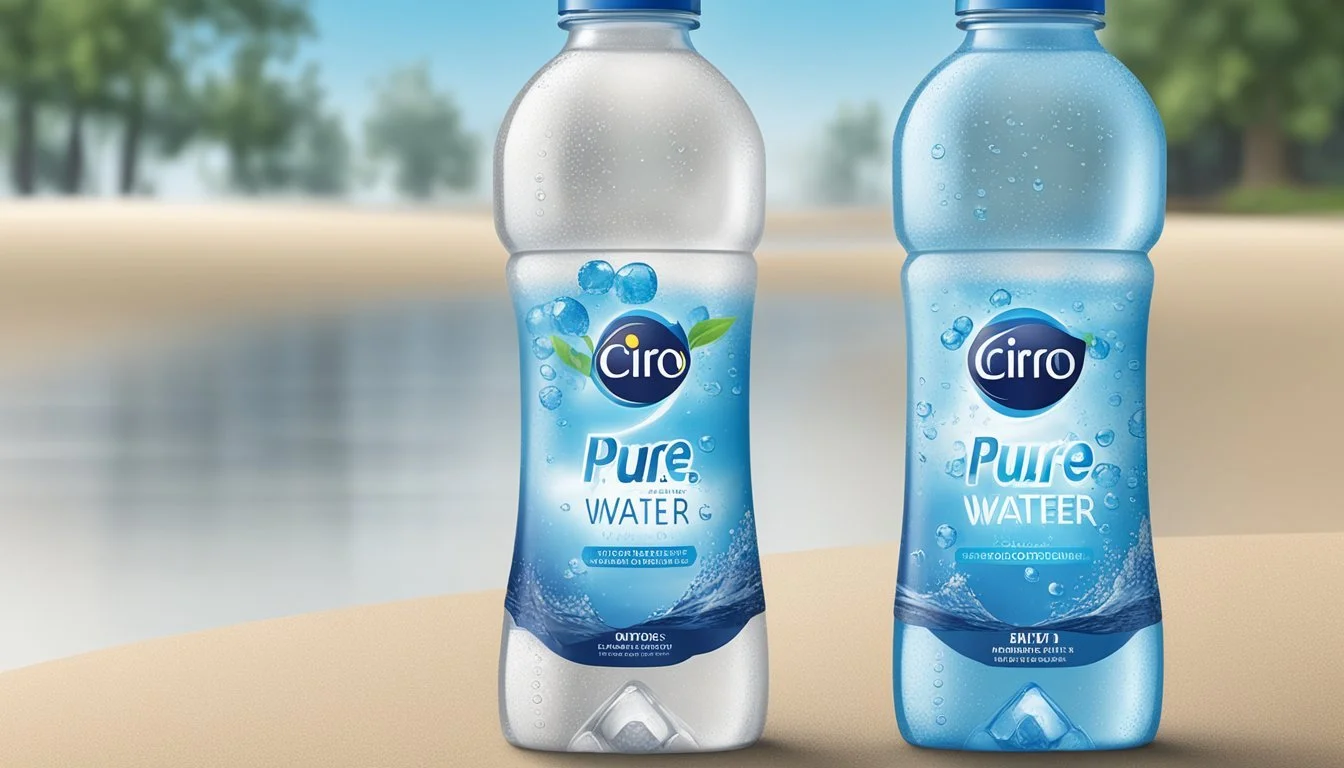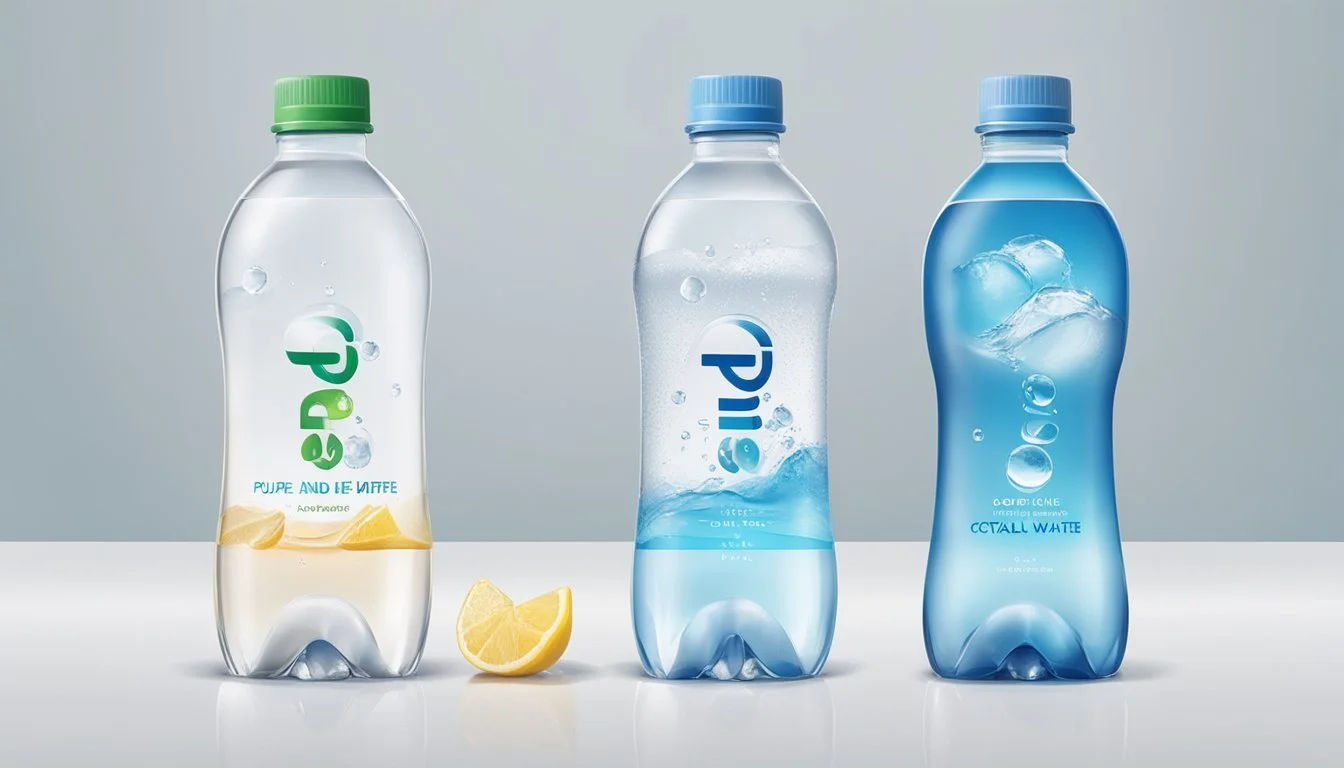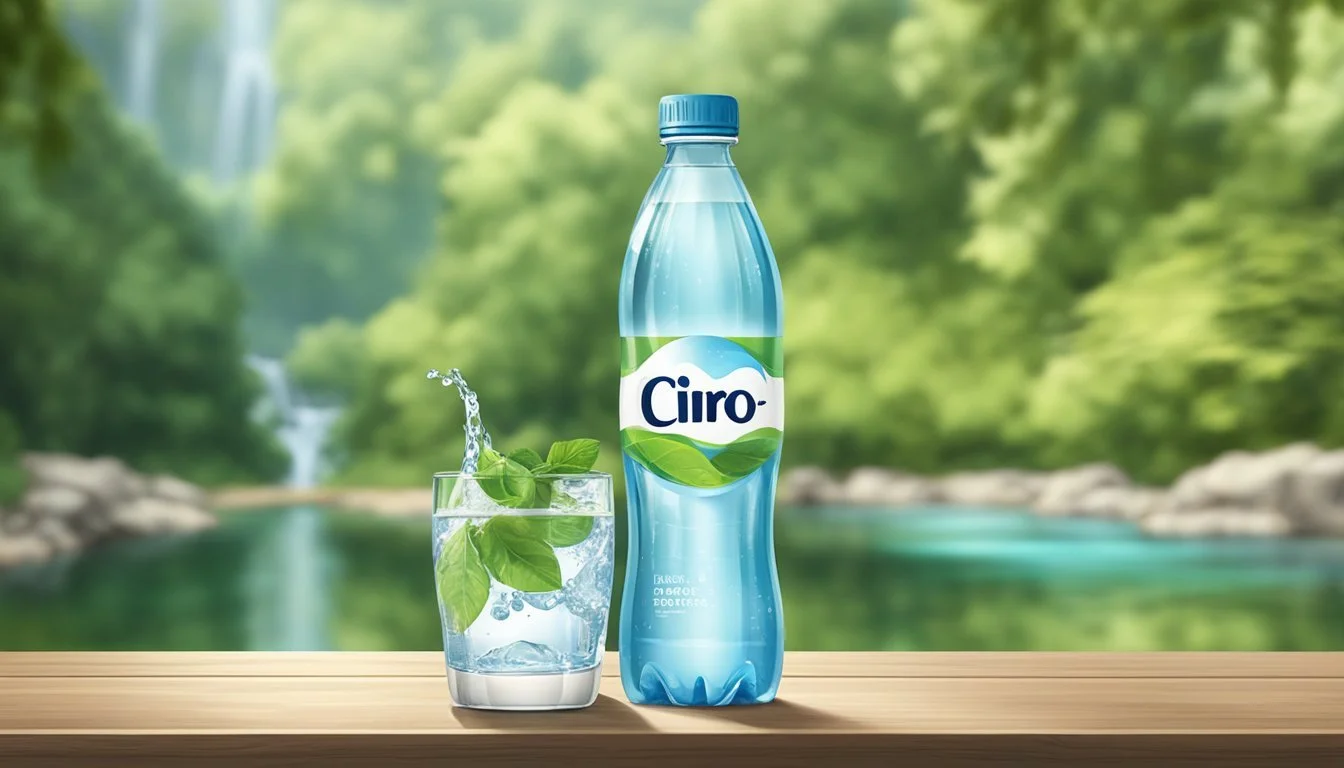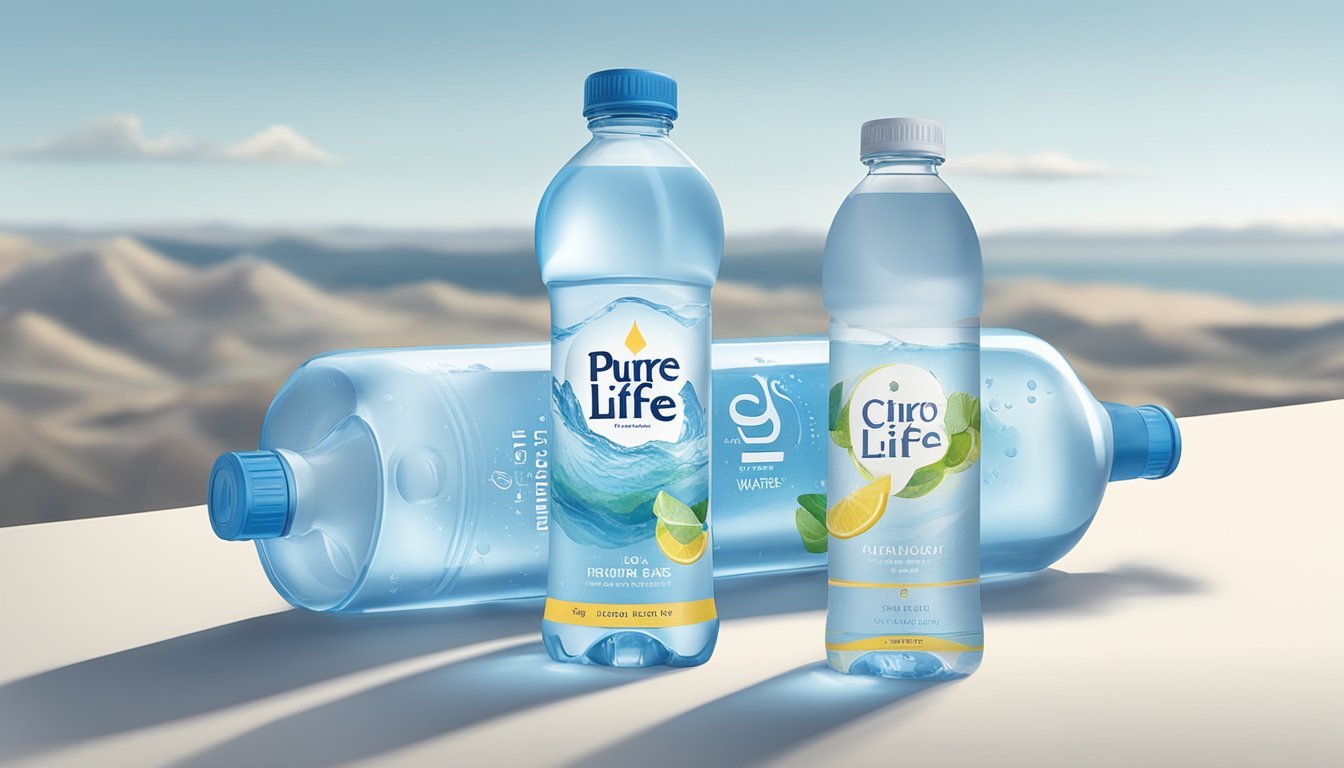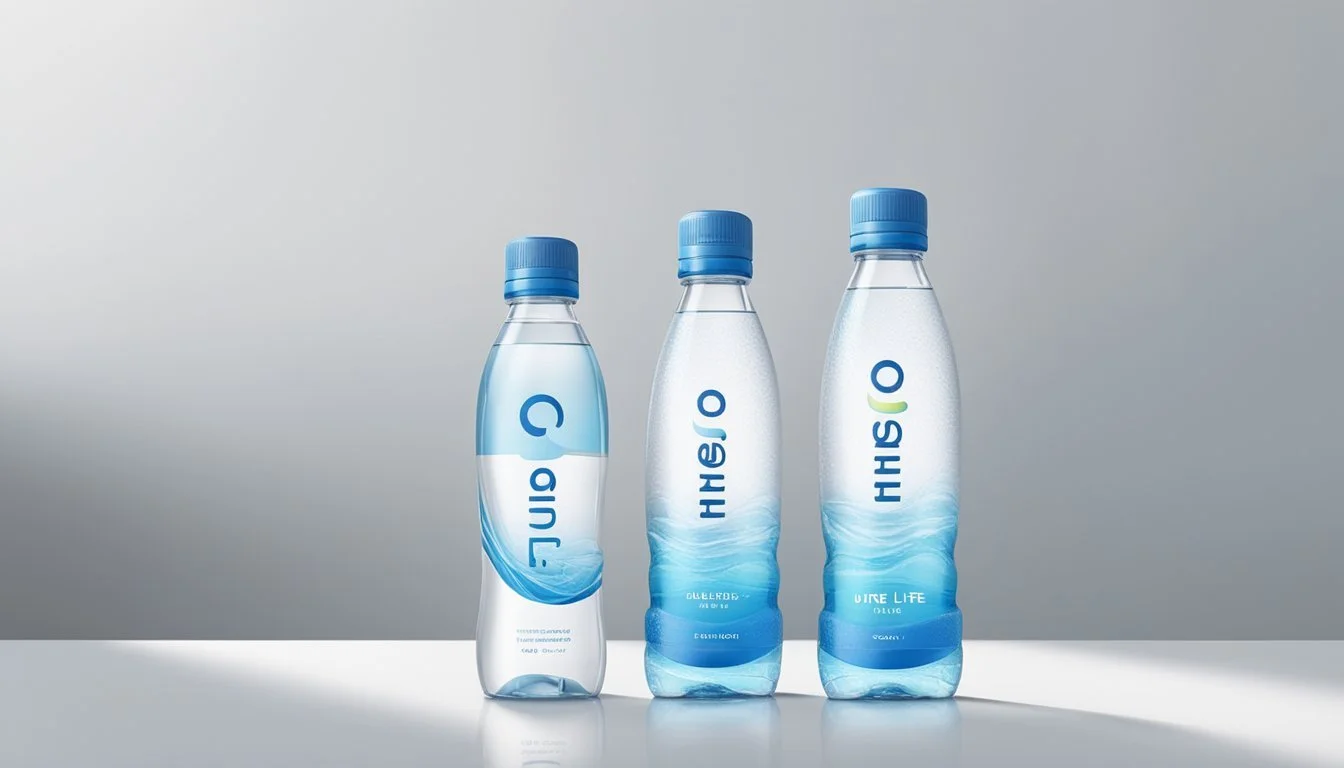Cirro vs. Pure Life
Which Bottled Water Offers Superior Quality?
Choosing between Cirro and Pure Life bottled water can be a challenge, especially when considering factors like taste, source, and overall quality. Cirro often receives high marks for its crisp taste and lack of aftertaste, making it a popular choice among consumers who prioritize flavor. Pure Life, on the other hand, is known for its wide availability and affordability but is often criticized for being just average in various taste tests.
While Pure Life provides a reliable and widely accessible option, it doesn't necessarily stand out in terms of flavor or sourcing credibility. Cirro, distinguished by its clean and refreshing profile, is favored by many for its premium drinking experience. For those who seek a balance between quality and cost, Cirro may be the better option despite its generally higher price point.
Ultimately, the choice between Cirro and Pure Life depends on individual preferences regarding taste and budget. While Pure Life offers practicality and ease of access, Cirro delivers a superior taste experience that many find worth the extra expense.
The Significance of Hydration
Staying hydrated is crucial for maintaining health and ensuring that bodily functions are carried out efficiently. Hydration affects everything from physical performance to cognitive function.
Health Benefits of Proper Hydration
Proper hydration supports cardiovascular health by assisting blood flow and reducing strain on the heart. This is particularly important during physical activities when the body loses water through sweat. Drinking sufficient water helps stabilize blood pressure and minimize the risk of developing hypertension.
Maintaining hydration balances body fluids, facilitating the transportation of nutrients and waste. This can prevent kidney stones and urinary tract infections. Hydration also supports electrolyte balance, which is essential for muscle function and nerve signaling. Electrolytes, such as potassium and sodium, in water or sports drinks, help sustain optimal performance and reduce muscle cramps.
Hydration is also significant for skin health, helping to maintain elasticity and reduce signs of aging. By keeping the skin hydrated, it stays resilient and less prone to irritation and damage. Thus, drinking adequate water daily benefits the entire body, from major organs to the skin.
Hydration and Bodily Functions
Hydration is vital for digestion and nutrient absorption. Water aids in breaking down food, allowing the body to absorb nutrients effectively. Inadequate hydration can lead to digestive issues like constipation and poor nutrient uptake. This highlights the importance of drinking enough water during meals.
The body relies on water to regulate its temperature through sweating and respiration. During exercise or hot climates, staying hydrated prevents overheating and heat-related illnesses. Water acts as a lubricant for joints, reducing friction and the risk of injuries.
Brain function is closely linked to hydration levels. Even mild dehydration can impair cognitive abilities, leading to difficulty in concentration, memory problems, and mood swings. A well-hydrated brain ensures better mental clarity and emotional stability. Making hydration a priority supports every major bodily function, from digestion to cognition.
Understanding Bottled Water
Bottled water comes in various types, each distinct based on its source or treatment process. The bottling process itself involves several stages to ensure safety and quality.
Types of Bottled Water
Spring Water: Sourced from an underground formation, spring water naturally flows to the surface. It must be collected only at the spring or through a borehole tapping the underground formation. It contains minerals present in the source.
Purified Water: This type goes through processes like reverse osmosis, distillation, or deionization. These methods remove impurities, making the water virtually identical to other potable water.
Mineral Water: Unlike purified water, mineral water has a certain amount of minerals, such as calcium and magnesium, that are maintained or added during bottling. It is sourced from geologically and physically protected underground water sources.
Artesian Water: This water originates from a well that taps a confined aquifer (a water-bearing underground layer of rock or sand). The pressure in the aquifer forces the water to the surface naturally.
Bottling Processes Explained
Filtration: All bottled water types typically undergo a filtration process. Filtration removes particles, pathogens, and other contaminants. It ensures clarity and purity before further treatment processes.
Reverse Osmosis: This process forces water through a semipermeable membrane, removing a high percentage of dissolved solids, salts, and impurities. It is common in producing purified water.
Mineral Addition: For mineral water, the presence of minerals is controlled. Bottlers may add minerals to achieve desired levels, as opposed to removing them as in purified water.
Quality Control: Ensuring the safety and quality of bottled water involves rigorous testing for contaminants, pH levels, and purity. Each batch is assessed to meet regulatory standards before reaching consumers.
These processes collectively guarantee the bottle’s content is safe, clean, and of high quality.
Comparing Water Quality
Choosing between Cirro and Pure Life involves examining their purity levels, mineral content, and the presence of contaminants to determine which offers better quality water for consumers.
Assessing Purity Levels
Both Cirro and Pure Life are marketed as purified water, but the purification processes they undergo vary. Cirro often undergoes reverse osmosis and carbon filtration, ensuring the removal of most dissolved solids and impurities. This results in water with a high purity level.
Pure Life, on the other hand, uses a multi-step purification process that includes reverse osmosis and distillation. The purity levels achieved by Pure Life are also impressive, with many contaminants removed. An added benefit is the remineralization process that adds back essential minerals, which improves taste and quality.
Mineral Content and Health Effects
Cirro typically contains lower mineral content due to its extensive purification process. This can be beneficial for those who need water with fewer dissolved solids but may lack essential minerals like magnesium and calcium, which are important for health.
Pure Life enhances its water by adding minerals such as calcium, magnesium, and potassium after the purification process. This not only improves the taste but also provides certain health benefits. These minerals are crucial for various bodily functions, such as bone health (calcium), muscle function (magnesium), and electrolyte balance (potassium).
Mineral Cirro (mg/L) Pure Life (mg/L) Calcium Low Moderate Magnesium Low Moderate Potassium Low Moderate
Presence of Contaminants
Contaminant-free water is essential for safety and health. Cirro undergoes rigorous testing to ensure the absence of harmful contaminants such as bacteria, heavy metals, chloride, and fluoride. The purification steps employed significantly reduce these unwanted substances, making the water safe for consumption.
Pure Life also ensures its bottled water contains minimal levels of contaminants. The purification steps are effective in removing potential bacteria, heavy metals, and other impurities. Additionally, it adheres to strict quality control measures to maintain a safe product.
Both brands commit to high safety standards, often exceeding regulatory requirements to provide clean and safe drinking water. The thorough testing processes implemented by both companies reinforce consumer confidence in their products.
Taste Profiles
The taste of bottled water is influenced by various factors including mineral content and purification processes. Comparing Cirro and Pure Life reveals distinct differences in their flavor profiles and consumer preferences.
Factors Influencing Water Taste
The mineral content in water significantly affects its taste. Minerals like calcium, magnesium, and sodium contribute to a spectrum of flavors that can range from sweet to slightly salty.
Purification methods, such as reverse osmosis or distillation, also play a role. Distilled water tends to have a neutral taste, while mineral-rich water can have a more complex flavor.
Packaging and storage conditions can further influence the overall flavor, with some consumers noting a plastic taste in bottled water.
Water Taste Comparisons
Cirro is known for its slightly crisp and clean taste, which many attribute to its source and minimal processing. The water is often described as having a subtle sweetness.
Pure Life, on the other hand, offers a more neutral experience. Its purification process strips away most minerals, resulting in a balanced and unobtrusive flavor.
In blind taste tests, Pure Life tends to cater to those who prefer a straightforward, no-flavor taste, whereas Cirro appeals to individuals who enjoy a more distinctive water profile.
Aftertaste and Consumer Preferences
Aftertaste can be an important factor for consumers. Cirro generally has a clean finish, with very little aftertaste, making it a favorite among those who dislike lingering flavors.
Pure Life also has a minimal aftertaste, but some note a faint trace of sweeteners or additives.
Consumer preferences often hinge on these nuances. People who prioritize a clean, straightforward taste might prefer Pure Life, while those who appreciate a bit more character in their water may lean towards Cirro.
Brand Overview
Cirro and Pure Life are two prominent bottled water brands, each with distinct characteristics and market positioning. Cirro is known for its innovative approach and diverse offerings, while Pure Life represents a globally recognized brand under the Nestlé Waters umbrella.
Cirro: Brand Origins and Offerings
Cirro emerged as an upstart in the bottled water industry, targeting health-conscious consumers. Emphasizing purity and mineral content, Cirro sources its water from high-quality springs. Their offerings include still, sparkling, and flavored waters, aiming to provide options beyond basic hydration.
Cirro prides itself on using eco-friendly packaging, frequently incorporating recycled materials. Innovations, such as alkaline water variations, highlight their commitment to catering to modern dietary trends. As a lesser-known brand compared to giants like Aquafina or Evian, Cirro leverages its niche market appeal to carve out a loyal customer base.
Pure Life: A Nestlé Waters Brand
Pure Life, a significant player under the Nestlé Waters brand, is one of the most widely distributed bottled water brands globally. Nestlé Waters, as the largest bottled water corporation in the world, ensures Pure Life is readily available across numerous markets.
The product line primarily includes still water, focusing on reliability and accessibility. Despite facing criticism over its water sourcing practices, Pure Life continues to be a staple for many households. The brand's association with Nestlé grants it a considerable market presence, competing directly with brands like Fiji Water, Smartwater, and Voss.
Market Competitors Overview
In the competitive bottled water market, several brands vie for consumer preference. Cirro and Pure Life both face stiff competition from well-established names.
Evian and Fiji Water focus on premium segments, with an emphasis on natural spring sources and unique mineral compositions. Smartwater and Voss leverage marketing strategies that emphasize purity and style. Aquafina, a product of Coca-Cola, competes through widespread distribution and affordability.
These competitors highlight the diversified landscape in which Cirro and Pure Life must operate, each striving for a distinct market position through quality, branding, and innovative offerings.
Environmental and Ethical Considerations
When comparing Cirro and Pure Life bottled waters, it's important to weigh their environmental impact and ethical practices, especially concerning their bottling processes and ecological footprint.
Bottling Process and Ecological Footprint
The production of plastic bottles poses significant environmental challenges. Cirro promotes the use of recyclable materials in their packaging, aiming to minimize waste.
Pure Life, a brand under Nestlé, has taken steps like reducing plastic usage and opting for more sustainable practices, such as using lightweight bottles. They also disclose the specific water sources and offer transparency about treatment methods, which can help consumers make informed choices.
However, both brands must also address the broader ecological footprint of transporting bottled water over long distances. Sustainable practices like using local sources and investing in BPA-free materials can reduce harmful environmental effects.
Encouraging customers to recycle can also play a key role in reducing environmental impact. Pure Life offers information on how to recycle properly, helping to ensure that bottles do not end up in landfills. Similarly, Cirro continues to explore more efficient recycling systems to support environmental sustainability.
Practical Information
When comparing Cirro and Pure Life bottled waters, several key factors such as price, availability, and packaging design play crucial roles. These elements help consumers make informed choices based on value, convenience, and aesthetics.
Price Comparison and Value
Cirro and Pure Life are both widely available brands, but their prices can vary significantly. Pure Life tends to be one of the more affordable options on the market, often available in bulk at major grocery stores. Cirro, on the other hand, is often priced slightly higher but is marketed as a premium product. Pure Life often has discounts tied to multi-pack purchases, making it a budget-friendly option for families or bulk buyers. Cirro's higher price point is justified by its marketed purity and additional filtration processes. Here's a breakdown:
Brand Average Price (per case) Value Propositions Cirro $12.00 Premium filtration, sleek design Pure Life $8.00 Budget-friendly, widely available discounts
Availability and Convenience
Pure Life has an edge in availability, being stocked extensively in nearly all major grocery stores, pharmacies, and convenience stores. It is also frequently found in vending machines and pop-up retail locations, making it easily accessible. Cirro is available in many major retail locations, but its presence may be slightly more limited compared to Pure Life. It often features in upscale grocery stores and specialized health food shops. The convenience factor for Pure Life is higher for those who require bottled water on-the-go or from varied retail sources.
Packaging and Brand Design
Pure Life features a simple, utilitarian packaging that focuses on ease of use and functionality. The design is straightforward, with clear labeling that emphasizes the brand's commitment to quality and reliability.
Cirro, conversely, adopts a more elegant and modern design, targeting consumers who appreciate aesthetics. The bottling is sleek and minimalistic, often using recyclable materials which are an added appeal for environmentally-conscious buyers.
Pure Life's practical design includes ergonomic bottle shapes and easy-to-open caps. Cirro's visual appeal is complemented by its commitment to sustainability, often reflected in its packaging choices. Both designs cater to different consumer preferences, balancing functionality with style.
Expert Insights and Recommendations
When comparing Cirro and Pure Life bottled waters, professional tastings and rankings provide valuable insights into their taste profiles and overall quality.
Professional Tastings and Rankings
A water sommelier highlights the nuanced differences between Cirro and Pure Life. Cirro often stands out for its crisp and mildly mineral flavor, praised by panels for its refreshing quality. This makes it a favorite among those who enjoy a subtle yet distinctive taste.
In contrast, Pure Life is celebrated for its balanced and neutral profile. Professional tastings often rank it high for its ability to quench thirst without leaving an aftertaste. This quality appeals to consumers who prefer a neutral palate.
According to various taste tests, Pure Life consistently ranks as one of the best waters for those who prioritize purity. Cirro, meanwhile, is favored for its unique minerality. By comparing the expert insights, one can see distinct preferences leaning towards either a clean, neutral taste or a crisp, mineral-rich finish. Each brand offers something uniquely appealing based on individual taste preferences.


